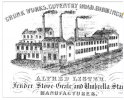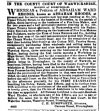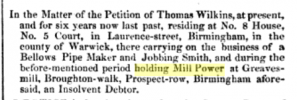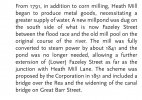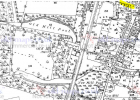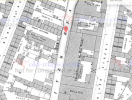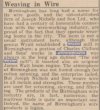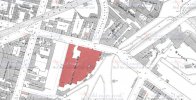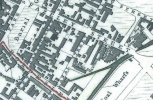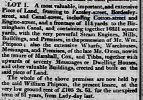debbieironmonger
master brummie
Hi wonder if any of you can help me decipher the meaning of a description about my ancestors.
They were John Rhodes & co, Fire Ironmakers from Deritend and in a dissolution of partnership are described as 'Holding mill power at the Chunk Works, Coventry Road' and 'Holding mill power at the cotton mills, Fazeley Street. What does holding mill power actually mean? Anyone?
They were John Rhodes & co, Fire Ironmakers from Deritend and in a dissolution of partnership are described as 'Holding mill power at the Chunk Works, Coventry Road' and 'Holding mill power at the cotton mills, Fazeley Street. What does holding mill power actually mean? Anyone?


